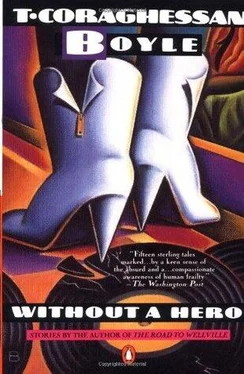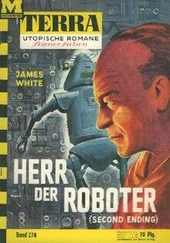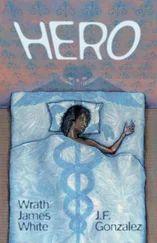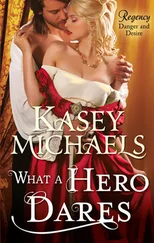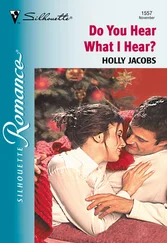T. Boyle - Without a Hero
Здесь есть возможность читать онлайн «T. Boyle - Without a Hero» весь текст электронной книги совершенно бесплатно (целиком полную версию без сокращений). В некоторых случаях можно слушать аудио, скачать через торрент в формате fb2 и присутствует краткое содержание. Год выпуска: 1995, Издательство: Penguin Books, Жанр: Современная проза, на английском языке. Описание произведения, (предисловие) а так же отзывы посетителей доступны на портале библиотеки ЛибКат.
- Название:Without a Hero
- Автор:
- Издательство:Penguin Books
- Жанр:
- Год:1995
- ISBN:нет данных
- Рейтинг книги:3 / 5. Голосов: 1
-
Избранное:Добавить в избранное
- Отзывы:
-
Ваша оценка:
- 60
- 1
- 2
- 3
- 4
- 5
Without a Hero: краткое содержание, описание и аннотация
Предлагаем к чтению аннотацию, описание, краткое содержание или предисловие (зависит от того, что написал сам автор книги «Without a Hero»). Если вы не нашли необходимую информацию о книге — напишите в комментариях, мы постараемся отыскать её.
Greasy Lake
People
Without a Hero
The Philadelphia Inquirer
Without a Hero — читать онлайн бесплатно полную книгу (весь текст) целиком
Ниже представлен текст книги, разбитый по страницам. Система сохранения места последней прочитанной страницы, позволяет с удобством читать онлайн бесплатно книгу «Without a Hero», без необходимости каждый раз заново искать на чём Вы остановились. Поставьте закладку, и сможете в любой момент перейти на страницу, на которой закончили чтение.
Интервал:
Закладка:
We all knew Jamie would be the first of us to go. No one doubted it, least of all Jamie himself. He courted it, flaunted it, rented his videos and tried, in his own obsessive, relentless way, to talk it to death. Every time he got in his car, even to drive to the corner for a pack of cigarettes, it was like the start of the Indianapolis 500. He picked fights, though he was thirty years old and should have known better, dove out of airplanes, wrecked a pair of hang gliders. When he took up rock climbing, he insisted on free climbs only — no gear, no ropes, no pitons, only the thin tenuous grip of fingers and toes. I hadn’t seen him in two years. He’d long since left L.A., teaching, any sort of steady job, steady income, steady life. He was in Aspen, Dakar, Bangkok. Once in a while I got a dirt-smeared postcard from out of the amazing pipeline, exotic stamps, a mad trembling hasty scrawl of which the only legible term was “dude.”
This was the face of Jamie’s death: Studio City, a golden winter afternoon, Jamie on a bench, waiting for the bus. It had rained the week before — the whole week — and the big twisting branches of the eucalyptus trees were sodden and heavy. They have a tendency to shear off, those branches, that’s why the city keeps them trimmed back. Or used to, when there were funds for such things. A wind came up, a glorious dry-to-the-bone featherbed wind off the desert; the trees threw out their leaves and danced. And a single branch, wide around as any ordinary tree, parted company with the trunk and obliterated my friend Jamie, crushed him, made dog meat of him.
Am I too graphic? Should I soften it? Euphemize it? Pray to God in His Heaven?
When the phone rang and I heard the long-forgotten but unmistakable tones of an old high school sometime acquaintance — Victor, Victor Cashaw — I knew what he was going to say before he knew it himself. I set down the phone and gazed through the kitchen to the patio, where Linda, my wife, lay stretched out on a rattan sofa, absorbed in a magazine that revealed all the little secrets of nail acrylics and blusher and which towel to use when you wake up at his house. For all I knew, she could have been pregnant. I walked straight out the door, climbed into the car and drove down the block to Video Giant.
In a way, it was perversely gratifying to see that the 100 Faces of Death series had grown to twenty volumes, but it was Volume IV that I wanted, only that. At home, I slipped quietly into the den — Linda was still there, still on the patio sofa, still motionless but for the beat of her eyes across the page — and inserted the cassette into the slot in the machine. It had been nine years, but I recognized Renaldo as if I’d seen him yesterday, his dilemma eternal, his sweat inexhaustible, his eyes forever glossy. I watched the lovely assistant slide toward panic, focused on the sliver of straw clenched between Renaldo’s gleaming teeth. When did he realize? I wondered. Was it now? Now?
I waited till the moment came for him to drop the straw. Poor Renaldo. I froze it right there.
56-0
IT WASN’T THE CAST that bothered him — the thing was like rock, like a weapon, and that was just how he would use it — and it wasn’t the hyperextended knee or the hip pointer or the yellowing contusions seeping into his thighs and hams and lower back or even the gouged eye that was swollen shut and drooling a thin pale liquid the color of dishwater; no, it was the humiliation. Fifty-six to nothing. That was no mere defeat; it was a drubbing, an ass-kicking, a rape, the kind of thing the statisticians and sports nerds would snigger over as long as there were records to keep. He’d always felt bigger than life in his pads and helmet, a hero, a titan, but you couldn’t muster much heroism lying facedown in the mud at fifty-six to nothing and with the other team’s third string in there. No, the cast didn’t bother him, not really, though it itched like hell and his hand was a big stippled piece of meat sticking out of the end of it, or the eye either, though it was ugly, pure ugly. The trainer had sent him to the eye doctor and the doctor had put some kind of blue fluid in the eye and peered into it with a little conical flashlight and said there was no lasting damage, but still it was swollen shut and he couldn’t study for his Physical Communications exam.
It was Sunday, the day after the game, and Ray Arthur Larry-Pete Fontinot, right guard for the Caledonia College Shuckers, slept till two, wrapped in his own private misery — and even then he couldn’t get out of bed. Every fiber of his body, all six feet, four inches and two hundred sixty-eight pounds of it, shrieked with pain. He was twenty-two years old, a senior, his whole life ahead of him, and he felt like he was ready for the nursing home. There was a ringing in his ears, his eyelashes were welded together, his lower back throbbed and both his knees felt as if ice picks had been driven into them. He hobbled, splayfooted and naked, to the bathroom at the end of the hall, and there was blood in the toilet bowl when he was done.
All his life he’d been a slow fat pasty kid, beleaguered and tormented by his quick-footed classmates, until he found his niche on the football field, where his bulk, stubborn and immovable, had proved an advantage — or so he’d thought. He’d drunk the protein drink, pumped the iron, lumbered around the track like some geriatric buffalo, and what had it gotten him? Caledonia had gone 0–43 during his four years on the varsity squad, never coming closer than two touchdowns even to a tie — and the forty-third loss had been the hardest. Fifty-six to nothing. He’d donned a football helmet to feel good about himself, to develop pride and poise, to taste the sweet nectar of glory, but somehow he didn’t feel all that glorious lying there flat on his back and squinting one-eyed at Puckett and Poplar’s Principles of Physical Communications: A Text , until the lines shifted before him like the ranks of X’s and O’s in the Coach’s eternal diagrams. He dozed. Woke again to see the evening shadows closing over the room. By nightfall, he felt good enough to get up and puke.
In the morning, a full forty hours after the game had ended, he felt even worse, if that was possible. He sat up, goaded by the first tumultuous stirrings of his gut, and winced as he pulled the sweats over each bruised and puckered calf. His right knee locked up on him as he angled his feet into the laceless high-tops (it had been three years at least since he’d last been able to bend down and tie his shoes), something cried out in his left shoulder as he pulled the Caledonia sweatshirt over his head, and then suddenly he was on his feet and ambulatory. He staggered down the hall like something out of Night of the Living Dead , registering a familiar face here and there, but the faces were a blur mostly, and he avoided the eyes attached to them. Someone was playing Killer Pussy at seismic volume, and someone else — some half-witted dweeb he’d gladly have murdered if only his back didn’t hurt so much — had left a skateboard outside the door and Ray Arthur Larry-Pete damn near crushed it to powder and pitched right on through the concrete-block wall in the bargain, but if nothing else, he still had his reflexes. As he crossed the courtyard to the cafeteria in a lively blistering wind, he noted absently that he’d progressed from a hobble to a limp.
There was no sign of Suzie in the cafeteria, and he had a vague recollection of her calling to cancel their study date the previous evening, but as he loaded up his tray with desiccated bacon strips, mucilaginous eggs and waffles that looked, felt and tasted like roofing material, he spotted Kitwany, Moss and DuBoy skulking over their plates at one of the long tables in the back of the room. It would have been hard to miss them. Cut from the same exaggerated mold as he, his fellow linemen loomed over the general run of the student body like representatives of another species. Their heads were like prize pumpkins set on the pedestals of their neckless shoulders, their fingers were the size of the average person’s forearm, their jaws were entities unto themselves and they sprouted casts like weird growths all over their bodies.
Читать дальшеИнтервал:
Закладка:
Похожие книги на «Without a Hero»
Представляем Вашему вниманию похожие книги на «Without a Hero» списком для выбора. Мы отобрали схожую по названию и смыслу литературу в надежде предоставить читателям больше вариантов отыскать новые, интересные, ещё непрочитанные произведения.
Обсуждение, отзывы о книге «Without a Hero» и просто собственные мнения читателей. Оставьте ваши комментарии, напишите, что Вы думаете о произведении, его смысле или главных героях. Укажите что конкретно понравилось, а что нет, и почему Вы так считаете.
